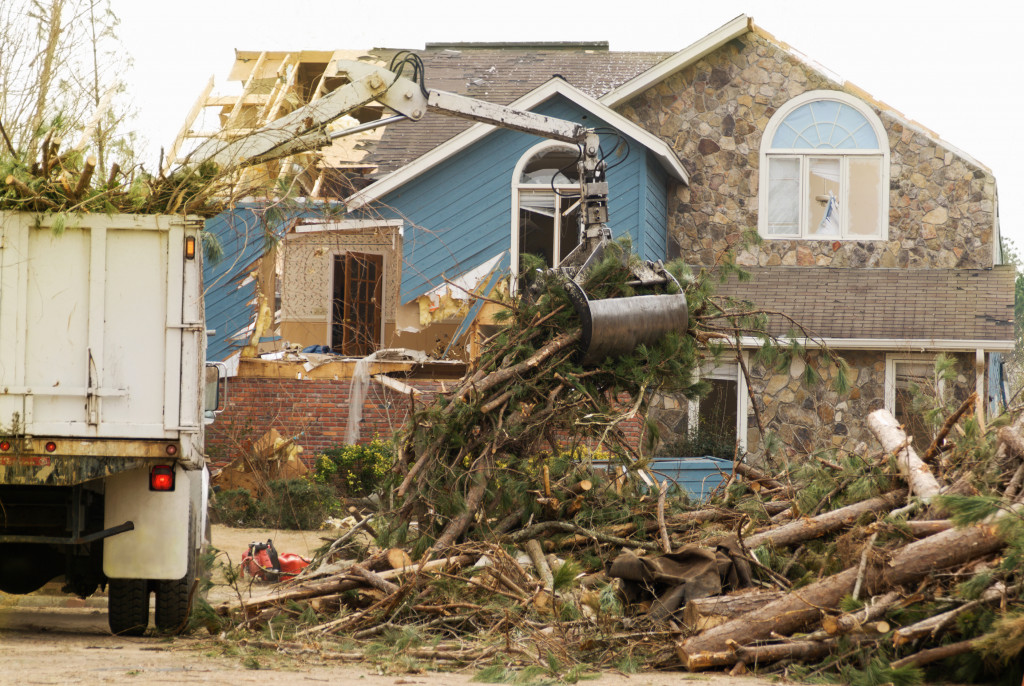You’ve probably experienced a natural disaster at least once in your life. In recent years, floods, wildfires, hurricanes, and tornadoes were seen in different parts of the world. So even though you need to spend money, you think of ways to make your home disaster-proof to keep your family safe.
Technically, there’s no way to determine the possible impact of a natural disaster. Sometimes, we only figure out how destructive it is right after the chaos. But still, it wouldn’t hurt to go the extra mile to prepare your house for damaging natural disasters in the future.
Check Your Windows
Windows are usually the weakest spot of houses. Radiant waves can easily crush them, so think of the damages a wildfire could cause if your windows are fragile. It’s wiser to invest in double-pane window variants for extra protection. If you’re worried about the aesthetics, you can add a layer of tempered glass on the outside.
Additionally, installing roll-down metal file doors into the roof hangings is a great way to build protection. Even if you leave your sliding glass windows open, the roll-down metal will still be there to secure the window. Start checking the windows in your basement as they are the most vulnerable windows to disasters.
Improve Your Big Openings
Strengthening your houses’ big openings will improve its durability against natural calamities. To start, make sure that your door is wind resistant. In buying a door, check for the label. It would show how durable the door is against wind speed. If you don’t see any label, there’s a high possibility that it’s not wind resistant.
If you live in a hurricane-prone location, investing in a good hurricane shutter would be better. Even though the price may be a bit expensive, hurricane shutters work pretty well in keeping your house secured. If the budget allows, invest in some plywood as well for extra protection.

Secure the Foundation and Fix Weak Walls
Weak walls are often the reason why homes easily break during earthquakes and hazardous events. Make sure that pre-cast concrete walls don’t have cracks and aren’t crippled. One indication that you need to fix your walls is if there are visible signs of water leaks. Not taking any action to fix the damages could cost you your entire home, so do so while you still have the time.
Apart from your walls, it would help if you also secured your foundation. Install some steel anchor plates in the sills to make your home resistant to minor earthquakes and land shakes. To ensure that the anchor plates are correctly installed, you might need to hire a professional to do the job.
Don’t Neglect the Vents and Louvers
One of the common mistakes of homeowners is not paying attention to the holes in their houses. If you’re going to disaster-proof your home, it’s essential to include the vents and louvers as well. It would help if you secured the vents in your attic and under the floor against fire disasters. For added security, protect your vents with fire dampers with fusible links.
You also have vents in your bathroom and kitchen. Just like the big vents, you should also check them from time to time. Make sure that the structure of your ducts follows local building codes.
Preparing for Natural Disasters
Now that we’ve discussed how to make your house resistant to natural disasters, let’s talk about preparing for calamities. While it’s hard to determine when the calamity will hit your area, preparing beforehand is still advisable.
- Watch the news and keep yourself updated.
- Prepare for power interruption. Make sure that your phones, flashlights, and other rechargeable devices are fully charged.
- Double-check your emergency equipment. Make sure that smoke detectors are working.
- Store enough food and water for the entire family.
- If there are any, repair house damages as early as possible.
- Inspect the trees around your home. They should be strong enough to withstand strong winds and storms.
- Park your car in the indoor garage.
- Secure your important documents. Put them in a sealed envelope and cover them with plastic.
- Prepare your emergency kit too. It should contain bandages, pain killers, alcohol, and gauze.
- Create an escape plan with your family.
In most cases, local governments place rescue teams and help systems in different areas to aid residents. Always listen to their instructions so that you’ll know the gravity of the threat and when it’s time to evacuate.
Each member of the family must be aware of what to do in emergencies. Orient everyone, yes, even the kids, about what they should do when things go south. Remember, surviving natural calamities is possible with preparation and proper planning.

